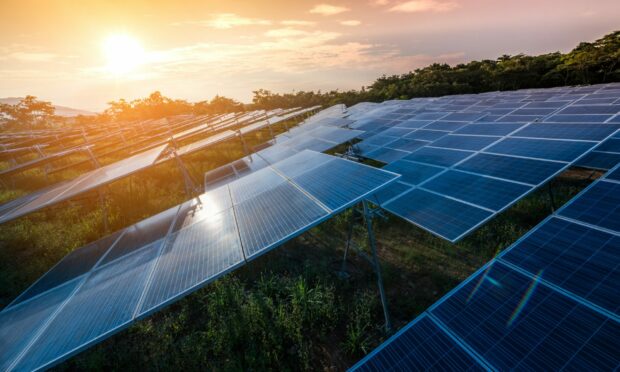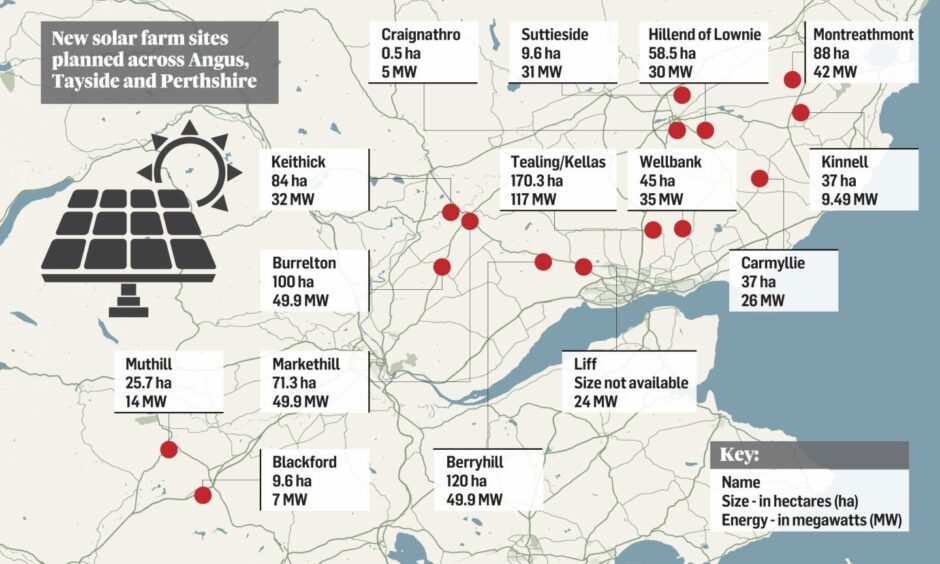Courier readers have expressed their fears over food production as councils consider plans for solar developments in Angus, Perth and Kinross.
An investigation by The Courier found that the new solar developments under consideration across Tayside would span land larger than Arbroath.
The plans – described as ‘monstrous’ – would see sizeable solar farms cropping up in areas like Berryhill, Wellbank and Blackford.
Many of the areas being considered are farmland, including the sites at Berryhill and Montreathmont.
The move has been described as “risky” by Courier readers concerned about food shortages.
“The loss of grain from Ukraine has highlighted how risky offshoring more and more food production is,” said one reader.
‘What are we supposed to eat?’
Food shortages have been exacerbated by the conflict in Ukraine.
In June, an Angus resident called the area the “bread basket of Scotland”.
She is not the only one who thinks the land being considered for solar farms should be reserved for food production.
A reader questioned: “If an agricultural area the size of Arbroath is lost to solar panels – what are we supposed to eat?
“Food security is at greater risk than energy security.”
The combined land of all these potential developments would measure a huge 900 hectares (ha).
That is larger than Arbroath.
One reader called for Angus Council to “leave agricultural land [like this] for producing food”.
Why are so many solar developments being considered in Angus, Tayside and Perthshire?
Scotland has committed to the target of reaching Net Zero by 2045. This is five years ahead of the rest of the UK.
Net zero means a balance of the greenhouse gases released into the atmosphere and taken out of it.
A spokesperson for the company working on the Berryhill solar development said the plans could make a “meaningful contribution to Scotland’s renewable energy generation target.”
But the former president of the National Farmers’ Union, George Lyon, said trying to achieve net zero without sacrificing food production is a balancing act.
He said: “That fundamental debate on how to balance the environmental goals of net-zero without sacrificing food production is the key question every farm minister around Europe is currently wrestling with.”
‘Either we are serious about stopping climate change or we are not’
But there are others who believe solar is the way to go to fight the climate crisis.
A reader said: “Either we are serious about stopping climate change or we are not.”
Another proposed that: “A solar farm with wildflower meadow and grazing would be a much better use of the land [instead of] allowing it to sit unproductive.”
The ground beneath the solar panels would be a space for wildlife.
He pointed out that wild meadows like this would “boost local biodiversity considerably”.
The solar developments would also increase “carbon neutral electricity generation”.












Conversation